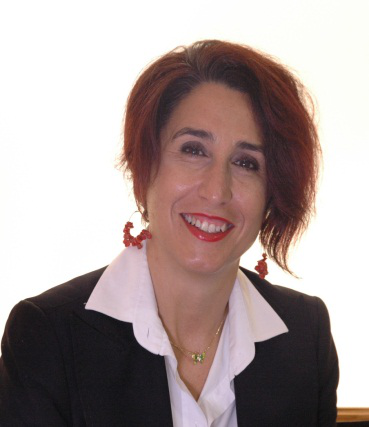 Biograph: Maria Sabrina Greco graduated in Electronic Engineering in 1993 and received the Ph.D. degree in Telecommunication Engineering in 1998, from University of Pisa, Italy. From December 1997 to May 1998 she joined the Georgia Tech Research Institute, Atlanta, USA as a visiting research scholar where she carried on research activity in the field of radar detection in non-Gaussian background.
Biograph: Maria Sabrina Greco graduated in Electronic Engineering in 1993 and received the Ph.D. degree in Telecommunication Engineering in 1998, from University of Pisa, Italy. From December 1997 to May 1998 she joined the Georgia Tech Research Institute, Atlanta, USA as a visiting research scholar where she carried on research activity in the field of radar detection in non-Gaussian background.
In 1993 she joined the Dept. of Information Engineering of the University of Pisa, where she is Full Professor since Dec. 2016. She’s IEEE fellow since Jan. 2011 and she was co-recipient of the 2001 and 2012 IEEE Aerospace and Electronic Systems Society’s Barry Carlton Awards for Best Paper and recipient of the 2008 Fred Nathanson Young Engineer of the Year award for contributions to signal processing, estimation, and detection theory. In May-June 2015 and in January-February 2018 she visited as invited Professor the Université Paris-Sud, CentraleSupélec, Paris, France.
She has been general-chair, technical program chair and organizing committee member of many international conferences over the last 10 years. She’s guest editor of the upcoming special issue on “Machine Learning for Cognition in Radio Communications and Radar” of the IEEE Journal on Special Topics of Signal Processing and she has been lead guest editor of the special issue on "Advanced Signal Processing for Radar Applications" of the IEEE Journal on Special Topics of Signal Processing, December 2015, guest co-editor of the special issue of the Journal of the IEEE Signal Processing Society on Special Topics in Signal Processing on "Adaptive Waveform Design for Agile Sensing and Communication," published in June 2007 and lead guest editor of the special issue of International Journal of Navigation and Observation on” Modelling and Processing of Radar Signals for Earth Observation published in August 2008. She’s Associate Editor of IET Proceedings – Sonar, Radar and Navigation, member of the Editorial Board of the Springer Journal of Advances in Signal Processing (JASP), and Senior Editorial board member of IEEE Journal on Selected Topics of Signal Processing (J-STSP) and Senior area chair of the IEEE Transactions on Signal Processing. She has been member of the IEEE AES and IEEE SP Board of Governors (2015-17) and she’s Past Chair of the IEEE AESS Radar Panel. She has been as well SP Distinguished Lecturer for the years 2014-2015, and now she's AESS Distinguished Lecturer for the years 2015-2018, member of the IEEE Fellow Committee and AESS VP Publications.
Her general interests are in the areas of statistical signal processing, estimation and detection theory. In particular, her research interests include clutter models, coherent and incoherent detection in non-Gaussian clutter, CFAR techniques, radar waveform diversity and bistatic/mustistatic active and passive radars, cognitive radars. She co-authored many book chapters and more than 190 journal and conference papers.
Title:Cognitive active and passive radars: a signal processing perspective
Abstract: This presentation focuses on some applications of cognitive radars from the signal processing perspective. Cognitive radars are systems based on a perception-action cycle that sense the environment and learn from it important information on the target and the background, then adapt the transmitted waveform to optimally satisfy the needs of their mission according to a desired goal. Both active and passive radars are considered, highlighting the limits and the path forward. In particular, we consider cognitive active radars that work in spectrally dense environment and change the transmitted waveform on-the-fly to avoid interference with the primary user of the channel, such as broadcast or communication systems. In the framework of active radars, we present as well a reinforcement learning based technique to focus the antenna beampattern of collocated MIMO radars. We also describe cognitive passive/hybrid radars, that contrary to the active ones cannot directly change the transmitted waveforms on-the-fly but can instead select the best source of opportunity to improve the detection and tracking performance.